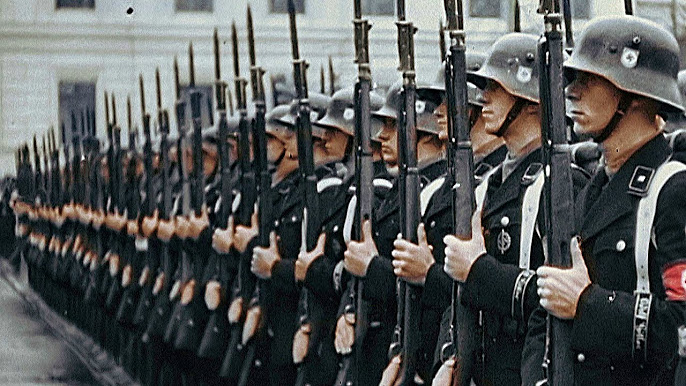
Exuberance
Commanding,
which is to be sharply distinguished
from the mere ordering about of others,
is self-conquest and is more difficult
than obeying.
Will is gathering oneself together
for the given task.
Only he who cannot obey himself
must be expressly commanded.
What the will wills
it does not merely strive after
as something it does not yet have.
What the will wills it has already.
For the will wills its will.
The will is what it has willed.
The will wills itself.
It mounts beyond itself.
The Word of Nietzsche: God Is Dead by Martin Heidegger 1943
All “purposes,” “aims,” “meaning” are only modes of expression and metamorphoses of one will that is inherent in all events: the will to power.
To have purposes, aims, intentions, willing in general, is the same thing
as willing to be stronger, willing to grow— and, in addition, willing the
means to this.
Will to Power, by Friedrich Nietzsche, aphorism 675 trans. Walter Kaufmann
To read and explore the philosophy of Friedrich Nietzsche is to encounter his principle of will-to-power. Who has not heard of Nietzsche, by hearsay? His bad-boy reputation was ignited by his God Is Dead fable found in The Gay Science. Also, it is impossible to forget the image of serrated ranks of black uniformed Nazi Party men saluting, pledging their allegiance to Hitler at the giant Nuremberg rally in 1933 and years following. The Nazi’s hijacked the will-to-power concept, stitching it into their murderous ideology of conquest. Historical events can make an individual unforgettable.
Nietzsche wrote that life itself is an expression of strength. Moreover, Being in its entirety, the infinite variety of things, living and inanimate, expresses the one will, being what they are, impressing their singular stamp, their essence upon all other essences which comprise a surrounding context. Being is a scrum of wills, every item, – solid, liquid, gaseous molecules, as near as the coffee in my mug (still warm) or as distant as the rotating Andromeda galaxy asserts itself, a bid to become more of what it already is, …
That my friend, is a mind bending series of thoughts for me. Seeking aid to improve my grasp of the matter, I began reading Heidegger’s essay. I am more than half way through the text. Its difficult but worth the effort.
More at hand than the stars, light years distant, I have wondered how Nietzsche’s principle of will and power illuminate the presence and behavior of former President, head of the Republican Party, Donald Trump. The orange faced septuagenarian is in his element when he stands before a red bedecked MAGA rally crowd. (foot soldiers of the National Socialist German Workers Party wore black) Trump’s countenance is distorted by a perpetual scowl. His voice, a font of invective, often racist, is overtly hostile to any disloyal to him personally. Trump is adept at ordering others about. Remember, “You’re fired!” from The Apprentice television show?
He is who he is, what he is, his willing, rage filled, jaded, emotionally incoherent, – that of a crippled man. A crippled man willing.
2 thoughts on “Exuberance”
Finally, getting back to attempting to recreate my reply from the other day, which I inadvertently obliterated before logging off. First, a small, nitpicky item about the idea that inanimate objects can have a sense of “will” (or did I misinterpret the words above?) Do we not need some form of consciousness to be able to create a sense of “will”? It seems to me that the term “will” is a way of perceiving the future, of moving either ourselves or some “thing” in a particular direction or towards a goal of some sort.
Second, you noted that: “Nietzsche wrote that life itself is an expression of strength.” It seems to me that it is just the opposite. That for the most part life is an expression of our weaknesses. every portion of most lives seems ruled by fear, uncertainty, greed, and narcissism. These attributes are gripped tightly by the vast majority of our species from childhood through the final breath. Imagine, if you will, a world where we are truly free from fear, to be able to interact with our environment and other people in a manner that allows for self-examination, and humane treatment or both our fellow human being and ourselves. This would be my version of Eden, but just like God’s perceived paradise, it too is a myth never to be realized. Oh well!
Nietzsche clearly advocates a form of panpsychism, the idea that everything is dynamically asserting itself. Life, as bios with rudimentary nervous system is not a minimum needed for “will” by Nietzsche’s lights. The molecules in my ceramic coffee cup surpass themselves, to express the type of substance which they are. This is a metaphysical position about reality as such.
“Will to power” as strength is always a feature, even if we homo sapiens are often crippled by inner anxieties, rising up from the abuse we’ve taken, the lies dispensed for our consumption when we were innocent and defenseless. We will express the essence of our being (whether a healthy/functioning being or a dysfunctional being) impressing “that,” creating the world after that imagination, asserting ourselves.
The world-as-tragedy is a “truth” the Greeks new well. Usually that is the way it goes.
“Around the hero everything turns into tragedy; around the demi-god; into a satyr-play; and around God — what? — perhaps into ‘world’?” (Beyond Good and Evil, aphorism 150)